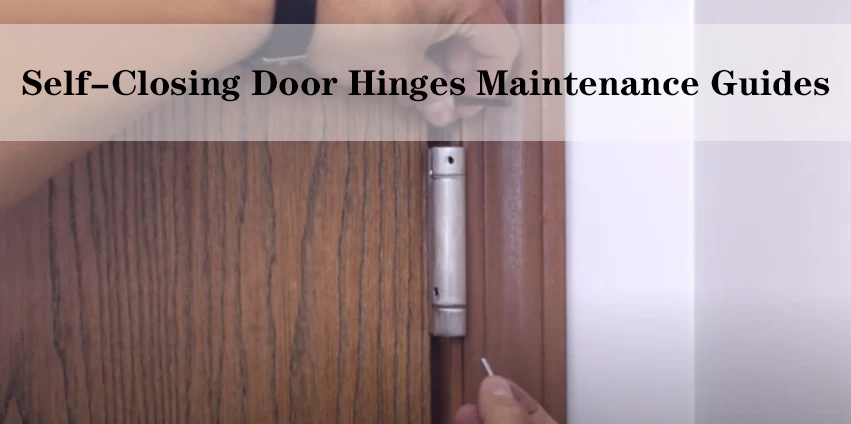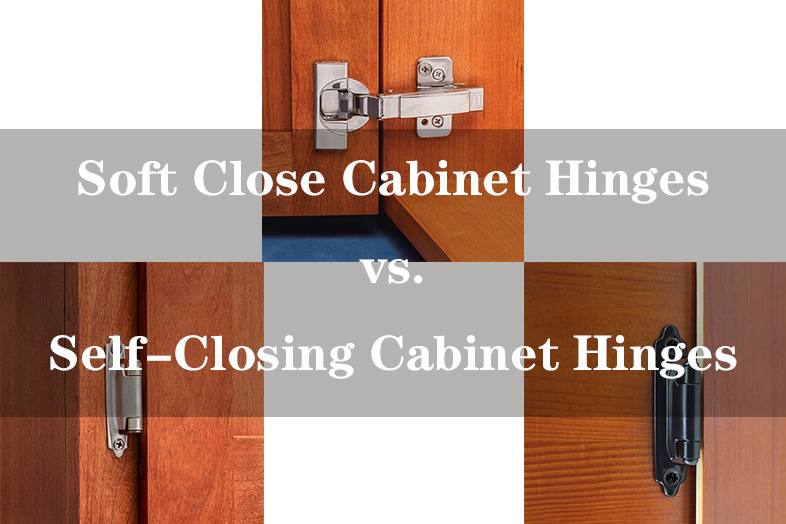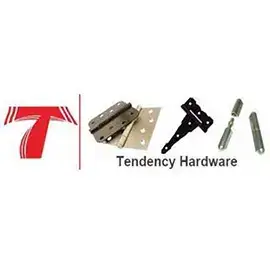Lift-off hinges are an integral part of many doors, especially those in high-traffic areas or settings where doors need to be frequently removed for access or cleaning purposes. They’re found in a variety of environments, from residential homes to commercial buildings and industrial facilities. The unique design of these hinges allows for quick and easy removal of the door without the need for tools, making them a versatile and convenient option.
However, their functionality also means they are subject to wear and tear. Regular maintenance is crucial to ensure that these hinges continue to operate smoothly and reliably. Without proper care, they can become stiff, noisy, or even fail, leading to security risks or damage to the door and frame. Here’s how you can keep them in excellent condition:
1. Regular Inspection
Consistency is Key: It’s advisable to inspect your lift-off hinges at least once every three months. During each inspection, look closely for any signs of wear and tear. Key things to check include:
Looseness: Ensure that the hinge is firmly attached to both the door and the frame. Loose hinges can cause the door to hang incorrectly, leading to additional strain and potential damage.
Alignment: Check that the door is hanging straight. Misalignment can not only affect the door’s function but can also be a sign of hinge wear.
Wear Signs: Look for any visible signs of wear on the hinge itself, such as metal shavings, which could indicate that the hinge is grinding against itself.
2. Cleaning Routine
Combat Dust and Grime: Dirt and debris can act as abrasives, wearing down the hinge over time and hindering its smooth operation. Here’s how to effectively clean your lift-off hinges:
Regular Dusting: Use a soft, dry cloth to gently dust the hinge. This prevents the build-up of surface dirt and grime.
Deeper Cleaning: For more thorough cleaning, especially if the hinges are exposed to kitchen grease, outdoor elements, or industrial pollutants, use a mild detergent diluted in water. Apply with a soft cloth or sponge, making sure to reach into the crevices of the hinge.
Rinse and Dry: After cleaning with detergent, it’s important to rinse the hinge with a damp cloth and then dry it completely to prevent any moisture-related issues.
Avoid Harsh Chemicals: Steer clear of abrasive cleaners or those containing harsh chemicals, as they can strip the protective coating off the hinges and accelerate wear.
3. Lubrication
Smooth Operation: One of the most critical aspects of maintaining your lift-off hinges is ensuring they are adequately lubricated. Proper lubrication reduces friction between the moving parts of the hinge, leading to smoother operation and a longer lifespan. It also plays a crucial role in preventing annoying squeaks that can occur when metal parts rub against each other.
Choosing the Right Lubricant: It’s essential to select a lubricant that is compatible with the material of your hinges. For most metal hinges, a silicone-based lubricant or a light machine oil works well. These lubricants are designed to withstand temperature changes and won’t gum up over time. For heavier hinges or in environments with high humidity or temperature fluctuations, a grease-based lubricant might be more appropriate.

Application Tips: When applying lubricant, less is often more. Start by carefully cleaning any dust or debris from the hinge. Then apply a small amount of lubricant directly to the pivot point of the hinge. It’s also a good idea to apply a thin layer along any moving parts where metal contacts metal. Use a cloth or a small brush for an even application, ensuring you don’t leave excess lubricant on the hinge, as this can attract dirt and grime, counteracting the benefits of lubrication.
Frequency of Lubrication: The frequency with which you need to lubricate your lift-off hinges depends on their usage and the environment. Hinges in high-traffic areas or those exposed to outdoor elements might need more frequent lubrication. A good rule of thumb is to lubricate your hinges at least once a year, but listen to your doors: a squeak is a clear sign that it’s time for some maintenance.
Aftercare: Once you’ve applied the lubricant, open and close the door several times to allow the lubricant to work its way into the hinge mechanism fully. Wipe away any excess lubricant to prevent it from attracting dust.
4. Tighten Up
A loose hinge can lead to a range of problems, from a door that doesn’t close properly to one that becomes a safety hazard. That’s why regularly checking and tightening any loose screws is crucial. This may seem like a minor task, but it can have a major impact on the hinge’s effectiveness and the overall alignment and functionality of the door.
When tightening screws, it’s important to use the right tools to avoid stripping the screw heads. A properly sized screwdriver or drill bit is essential. If a screw seems to be turning without tightening, it might be stripped or the hole may be too large. In such cases, you may need to replace the screw with a slightly larger one for a secure fit.
Additionally, it’s wise to check for any damage around the screw areas. Cracks or splits in the wood (for wooden doors and frames) can weaken the hinge’s hold. If such damage is found, it may be necessary to repair the wood or, in some cases, reposition the hinge altogether.
5. Rust Prevention
Rust is the enemy of metal hinges, especially those made of iron or steel. Rust not only compromises the appearance of the hinges but also their structural integrity. To prevent rust, the first step is to keep the hinges as dry as possible. In areas like bathrooms or exteriors where moisture is inevitable, regular drying and occasional cleaning can help.
Applying a rust inhibitor is an effective way to protect the hinges. These products create a protective barrier that shields the metal from moisture and air, two key elements in the formation of rust. It’s important to apply the inhibitor evenly and according to the manufacturer’s instructions for the best protection.
In environments with high humidity, you might want to consider using hinges made from materials less prone to rusting, such as stainless steel or brass. These materials offer superior resistance to corrosion and can be particularly beneficial in coastal areas where saltwater can accelerate rusting.
6. Mind the Weight

The weight a hinge can support is a critical consideration. If the lift-off hinges are not suitable for the door’s weight, they will wear out more quickly, and in worst-case scenarios, they could fail completely, potentially causing damage or injury.
To avoid these issues, ensure that the hinges you select are rated for the weight of your door. This information is usually available from the manufacturer and should be considered during the initial installation. If you’re unsure, consulting with a hardware specialist or a professional installer can provide clarity.
It’s also important to consider any additional weight that might be added to the door over time, such as extra layers of paint, heavy door handles, or added security features. If you plan to make such additions, factor in this extra weight when choosing your hinges.
Regularly assessing the door’s movement and ease of use can also give you early signs of overburdening. If the door starts to stick, drag, or becomes harder to move, it might be a sign that the hinges are under too much strain. In such cases, prompt action is required to adjust, reinforce, or replace the hinges before more significant problems arise.
7. Proper Usage

Handle with Care: Lift-off hinges, while robust, are not invincible. They are engineered for specific actions – primarily to allow a door to be easily lifted off its frame without the need for disassembling the hinge itself. It’s crucial to understand and respect this functionality. Misusing the door, such as leaning on it heavily, using it to prop up heavy objects, or allowing it to slam shut repeatedly, can exert undue stress on the hinges. This misuse can lead to a range of issues, from loosened screws to bent or misshaped hinge components. Over time, this can cause the door to hang incorrectly, leading to difficulties in operation and even security risks. Educating all users of the door, especially in a commercial or shared environment, about the proper handling can greatly extend the lifespan of your lift-off hinges.
8. Professional Help
Seek Expertise When Needed: While regular maintenance can be handled by most people, there comes a time when professional intervention is necessary. This might be the case when you’re facing a hinge that’s severely worn out, damaged beyond basic repair, or when you’re planning to upgrade your hinges for enhanced functionality or security. Professionals bring not only their expertise in handling various types of hinges but also their understanding of how different door materials and weights interact with different hinge designs. They can offer tailored advice, such as the best type of hinge for your specific needs or the most suitable lubricant for your hinge material. Furthermore, a professional can spot issues that might not be immediately obvious to the untrained eye, such as subtle alignment problems or signs of impending hinge failure. Investing in professional services when needed can prevent costly repairs or replacements down the line.
Conclusion
The essence of maintaining your lift-off hinges lies in the understanding that this is an investment in the longevity and safety of your doors. These hinges play a pivotal role in the seamless operation of doors in various settings, from homes to high-traffic public spaces. Regular maintenance, mindful usage, and seeking professional advice when necessary are not just practices but a commitment to ensuring that your doors function efficiently, safely, and reliably over time.
Incorporating these maintenance tips into a regular care routine for your doors and hinges can significantly impact their performance and durability. Regularity in maintenance and attention to detail are the cornerstones of keeping your lift-off hinges in prime condition. With these practices in place, you can enjoy the functionality and reliability of your hinges, knowing that they will serve you well for many years. Remember, a little effort in maintaining these crucial components can go a long way in preserving the integrity and functionality of your entire door system.























